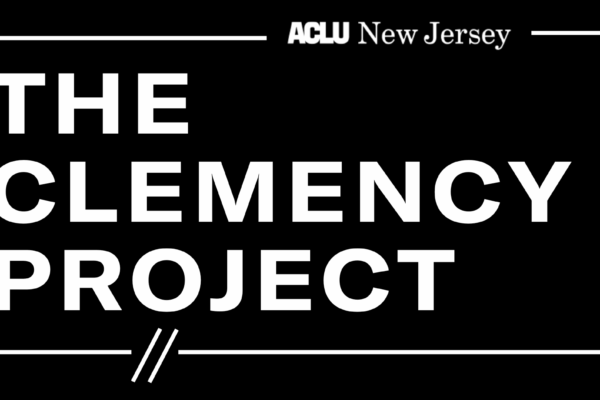Last week, Gov. Murphy issued an executive order that provides incarcerated survivors of domestic violence a chance at freedom by leveraging “categorical clemency,” a powerful tool that allows executive authorities to consider incarcerated people for pardons or shortened sentences based on a set of shared characteristics.
Gov. Murphy’s commitment to using categorical clemency comes during his second and final term in office. Clemency, or the power of the pardon, is an essential tool of the executive branch and using categorical clemency offers one of the few broad-stroke ways to address the harms brought by a flawed criminal legal system. By shortening sentences of incarcerated people in larger classes with shared experiences, categorical clemency realizes change that is profoundly human – and urgently needed.
Survivors of domestic violence – meaning survivors of either family or intimate partner abuse – are all too often punished by the criminal legal system. Often, imprisoned survivors – who have experienced deep physical, sexual, and psychological harm – defended themselves against their abuser, or were coerced into committing a crime alongside their abuser. But when faced with a criminal legal system that is overly punitive and dangerously deficient in assessing instances of trauma, survivors are arrested for actions without context of their lived experience.
For the criminal legal system to administer justice, it’s clear that it must move away from extreme punishment and toward solutions that prioritize each individual’s experience. Categorical clemency is one short-term method for executive authorities to consider the harmful, and often racially biased history, that the criminal legal system has perpetuated, but categorical clemency alone is not enough to instigate wholesale change that is so desperately needed.
Case in point: Of the 337 incarcerated women in the Edna Mahan Correctional Facility, nearly three-quarters of first-time offenders who committed violent crimes were abused by the victim of the crime for which they were serving their sentences. This paints a glaring reality: not only is the criminal legal system ignoring instances of domestic violence when it comes to those who are charged with violent crimes, but a barrier is placed to receiving a fair sentence.
By and large, our self-defense laws – originally created to protect property-owning white men – haven’t been updated to reflect cases of domestic violence. Survivors can be held responsible if they do not or cannot escape the violent situation because of laws that say people must leave a situation before defending themselves. For people who have suffered deep trauma over extended periods of time at the hands of an abuser, this law only serves to punish them.
And then, there are deep flaws in the sentencing system. Judges in New Jersey can consider more than a dozen mitigating factors when considering the severity of sentences. However, there is no explicit factor that allows for consideration of prior physical, sexual, or psychological abuse. As a result, if convicted, domestic violence survivors often receive long sentences, particularly if they committed a violent crime.
Notably, Black survivors are particularly vulnerable to these injustices. In a 2015 survey of more than nine hundred anti-violence advocates, survivors, and other stakeholders from almost all fifty states noted that police favor light-skinned survivors over Black survivors and are more likely to suspect Black survivors of contributing to the violence or somehow being at fault, and less likely to take their claims as survivors seriously. Moreover, Black women are more likely to be arrested themselves for behavior that may be consistent with self-defense, but instead interpreted through the stereotype of being overly aggressive.
Fighting for a fairer criminal legal system is not mutually exclusive from advancing racial equity. Too often Black and brown communities receive the tail end of what the system has to offer.
We need fundamental changes to our legal system to combat the inequities survivors face. And in conjunction, as a society, we must wholeheartedly adopt a vision of our nation that no longer rejects a person’s human experience, let alone their trauma.
Categorical clemency will begin to address the harms of the flawed criminal legal system – and governors have a moral obligation to leverage their pardon powers at every opportunity – but it must accompany a much larger reckoning. We can arrive at a reality where justice is more fully realized, but only if we prioritize human dignity. Categorical clemency is about so much more than forgiveness or second chances – it's about our power to build a future that can redeem our past. New Jersey must prove it to be possible.






